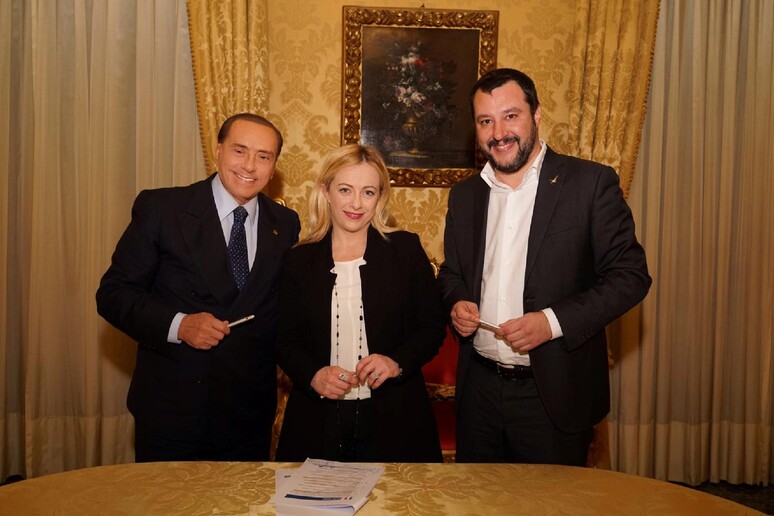The centre-right coalition is the political bloc seen as mostly likely to come first in Italy's March 4 general election on the basis of the opinion polls, although there is uncertainly about whether the alliance will have a working majority in parliament, even if it comes first.
The block is made up of three-time premier Silvio Berlusconi's Forza Italia (FI), Matteo Salvini's Euroskeptic, anti-migrant League, Giorgio Meloni's rightwing Brothers of Italy (FdI) party and a small group of centrists.
At the time of writing, the coalition had not said who its premier candidate is.
Berlusconi is currently ineligible to stand, although he is appealing to the European Court of Human Rights against a ban stemming from a tax-fraud conviction.
He has said European Parliament President Antonio Tajani would be a good premier, while Salvini has said he should lead the government if the League overtakes FI and wins more votes that its coalition ally in the election.
The programme was agreed on in January although there are differences on how it is being interpreted, especially between Berlusconi and Salvini.
The media billionaire, for example, pledged that the centre right would respect the EU's 3%-deficit-to-GDP ratio limit when he presented the manifesto to the European People's Party (EPP).
Shortly after Salvini said that, as far as he was concerned, Italy should feel free to ignore the threshold if it was in its interests to do so.
The programme itself simply says the centre right is against austerity.
One of the key points is the pledge to introduce a flat tax on business and households, which Berlusconi has said should be at a rate of 23%.
The centre right is also promising to abolish taxes on donations, inheritance, people's first homes, cars and savings.
Another key plank of the manifesto is the commitment to scrap the 2011 Fornero pension reform which introduces a mechanism to raise the retirement age in relation to life expectancy to make the system sustainable.
This is another area where differences have emerged. Salvini has said that the reform must be abolished completely, while Berlusconi has said it should be largely revised, with some parts being kept.
The proposals for the flat tax and the abolition of the Fornero law have been criticised on the grounds that the promises cannot be kept because they would cost the State many billions of euros. The programme promises to increase minimum pensions and revise the Good School reform introduced by the centre left, giving greater freedom to families in education choices. The centre right are vowing to take a hard line with the migrant crisis and "block the landings with assisted push-backs and treaties with the countries of origin of the economic migrants". Another priority is security, with "district" police and Carabinieri officers and extension of the 'Safe Streets' programme to use the armed forces in all cities.
ALL RIGHTS RESERVED © Copyright ANSA











